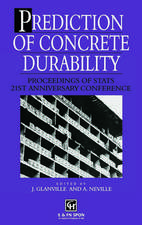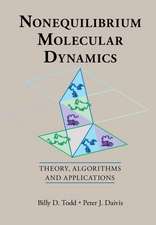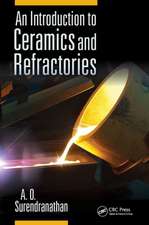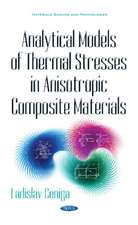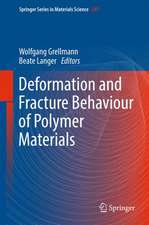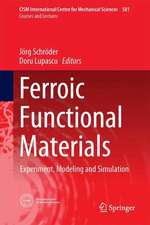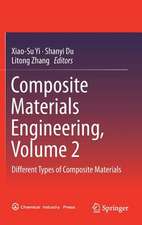Materials Design Using Computational Intelligence Techniques
Autor Shubhabrata Dattaen Limba Engleză Hardback – 18 oct 2016
| Toate formatele și edițiile | Preț | Express |
|---|---|---|
| Paperback (1) | 366.82 lei 6-8 săpt. | |
| CRC Press – 30 iun 2020 | 366.82 lei 6-8 săpt. | |
| Hardback (1) | 1156.65 lei 6-8 săpt. | |
| CRC Press – 18 oct 2016 | 1156.65 lei 6-8 săpt. |
Preț: 1156.65 lei
Preț vechi: 1445.81 lei
-20% Nou
Puncte Express: 1735
Preț estimativ în valută:
221.32€ • 231.08$ • 183.17£
221.32€ • 231.08$ • 183.17£
Carte tipărită la comandă
Livrare economică 04-18 aprilie
Preluare comenzi: 021 569.72.76
Specificații
ISBN-13: 9781482238327
ISBN-10: 1482238322
Pagini: 184
Ilustrații: 135
Dimensiuni: 156 x 234 x 16 mm
Greutate: 0.39 kg
Ediția:1
Editura: CRC Press
Colecția CRC Press
Locul publicării:Boca Raton, United States
ISBN-10: 1482238322
Pagini: 184
Ilustrații: 135
Dimensiuni: 156 x 234 x 16 mm
Greutate: 0.39 kg
Ediția:1
Editura: CRC Press
Colecția CRC Press
Locul publicării:Boca Raton, United States
Cuprins
Introduction. A brief overview of traditional approaches to materials design. Statistics and data mining concepts. Principles of neural network and other soft modeling techniques. Knowledge extraction using rough and fuzzy set theories. Handling imprecise knowledge through fuzzy inference system. Evolutionary algorithm for designing materials. Technique blends to suit a materials system. Hybridizing with traditional approaches. Designing microstructure. Concluding remarks.
Recenzii
"Intelligent computing techniques of diverse kinds are now very significantly influencing novel material design. In the current state of technology and the industrial requirements, these are some vital tools to make the design efficient, along with a lesser dependence on expensive and cumbersome experimentation. Such techniques are now ubiquitous and are widely used across disciplines. A good research based book focusing exclusively on their applications pertinent to the materials area is not very easy to locate. For that this very impressive book is just in time. The wide gamut of algorithms and their applications that it presents is very impressive. It is nice to see widely used Finite element technique and evolutionary techniques like Genetic Programming inside the same cover along with their pertinent applications. This book will be very useful for the scholars and researchers in this area and should be very useful for the classroom teaching of an advanced course in the area of Computational Materials Science."
— Nirupam Chakraborti, Indian Institute of Technology, India
— Nirupam Chakraborti, Indian Institute of Technology, India
Descriere
This book illustrates the alternative but effective methods of designing materials, where models are developed through capturing the inherent correlations among the variables on the basis of available imprecise knowledge in the form of rules or database.



